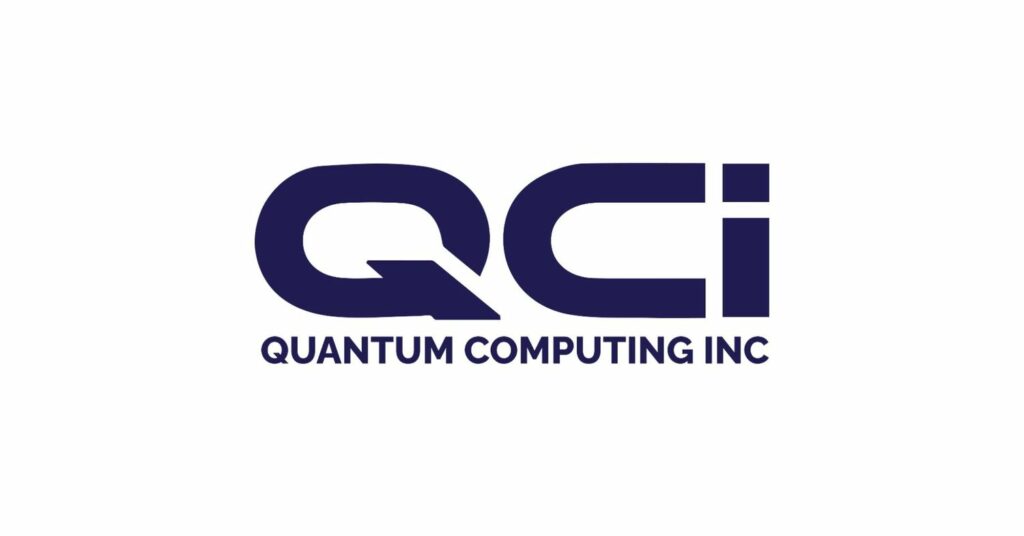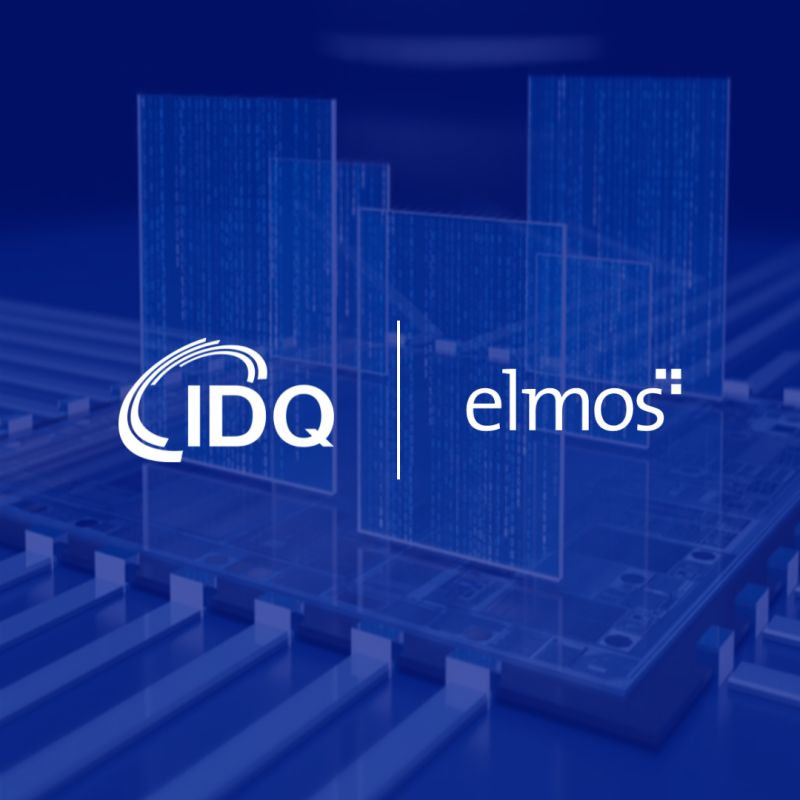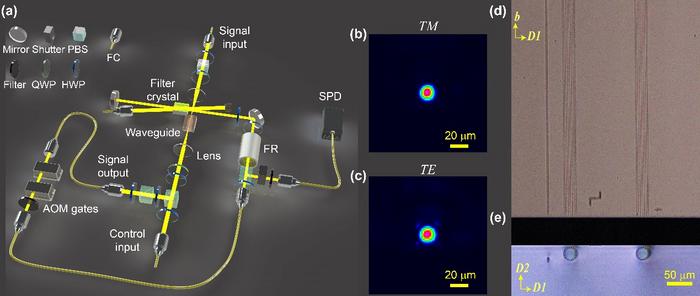
Jumpstarting Quantum Efforts
In Kristina LeBlanc’s insightful Atos blog post When will quantum computing become a mainstream reality? she lays bare her employer’s attitude towards quantum technology and where it’s heading. And though the post is mainly sobering and a disappointment for those who think we’ll have quantum laptops by 2025, her visions of collaborations involving the major players and startups — as well as organizations spread over various sectors that “will jumpstart their quantum development efforts” — is cause for celebration.
Because for quantum technologies to really develop and benefit society, we need more than just the Googles and IBMs of this world to build the hardware and the hundreds of startups that feed off them by developing software or ancillary services (that includes TDQ) to complete the ecosystems.
We need multinationals in banking, energy and countless other sectors to join the club, too. For it will be then that quantum will have surely arrived.
As usual with these posts, we will now go through some of the big players dipping their toes in the icy waters of quantum computing (QC) and general quantum tech. Not exhaustive, as always, there are some unfamiliar names next to those who are in fact household ones.

Enjoy!
1. Airbus
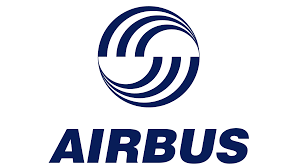
Airbus SE is a European company that provides aerospace products, services, and solutions internationally. Airbus’s registered headquarters is in Leiden, Netherlands, but its main civil aeroplane business is conducted through the French company Airbus S.A.S., based in Blagnac, a suburb of Toulouse, France.
As far as its venture into quantum technology goes, Airbus realizes that complicated computational needs in the areas of fluid dynamics, finite-element simulations, aerodynamics, flight mechanics, etc will require technologies like QC.
Additionally, research into quantum sensors — effective at measuring physical quantities such as frequency, acceleration, rotation rates, electric and magnetic fields, and temperature with the highest relative and absolute accuracy — will surely come in useful to the company in the future to improve upon already existing technologies.
Its Quantum Technology Application Centre — in collaboration with Endeavr — was established to explore space, aerospace and defence applications with external partners. The Airbus Quantum Computing Challenge, too — an initiative that is “building bridges to academia and start-ups by enabling participants to work on real industrial cases across a variety of aerospace challenges” — has to be an indicator the company is serious about quantum technologies’ future trajectory.
As far as academic partnerships go, Airbus has an ongoing relationship with the University of Bristol in regard to the joint Quantum Technology Innovation Centre they both have an interest in.
2. AT&T

AT&T Inc. provides telecommunication, media, and technology services worldwide. A US-based concern, AT&T giant is researching technology in the QC space though well aware its influence won’t change the world tomorrow but rather in the long term.
Working through a partnership called Intelligent Quantum Networks and Technologies (INQNET), the initiative involves researchers from the California Institute of Technology, Stanford University, national laboratories, startups, the military, and other institutions bringing about advances in quantum networking that could benefit all parties on board.
3. Atos

Atos provides hi-tech transactional services, unified communications, cloud, big data and cybersecurity services. Based in France, the company welcomed the French government’s National Strategy on Quantum Technologies earlier this year and is one of the leading participants in it.
Working in close collaboration with national players such as CSC — IT Center for Science IQM, GENCI (Grand Equipement National de Calcul) and the CEA (Commissariat à l’Energie Atomique), along with smaller players like QC startup Pasqal, Atos is at the forefront of research in the space in France and the wider world.
Atos’ QLM, as well — arguably the world’s most powerful quantum simulator — proves how far the company has come.
4. AXA

Another French company, Axa provides global insurance, investment management, and other financial services. Back in 2015, AXA Research Fund awarded to ICFO-The Institute of Photonic Sciences EUR 1.7 million to launch its Chair on Quantum Cryptography, bringing AXA’s support to science in Spain to approximately EUR 10 million
ICFO-The Institute of Photonic Sciences’ aim is to conduct research on developing and implementing encryption systems based on quantum devices. The ultimate goal is to attain one-hundred percent secure data communications
5. Singapore Central Bank
Back in April 2020, London-based Tradeteq received funding from the Singapore Central Bank on a project to develop quantum computing-based credit scoring methods for companies.
The initial research was conducted in collaboration with Singapore Management University (SMU), supported by the Monetary Authority of Singapore under the Financial Sector Technology & Innovation (FSTI) — Artificial Intelligence and Data Analytics (AIDA) Grant Scheme.
6. BASF
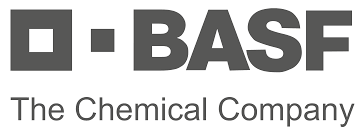
BASF SE is a multinational chemical company founded in Germany and the largest chemical producer in the world.
Through its venture capital wing BASF Venture Capital, BASF took part in a Series A investment round in the Boston-based QC startup Zapata Computing back in 2019. The round was led by Comcast Ventures, Pitango and Prelude Ventures. The investment was, according to Markus Solibieda, Managing Director of BASF Venture Capital, “to allow real quantum computing applications and build capabilities to help us compete in the quantum era.”
7. BBVA
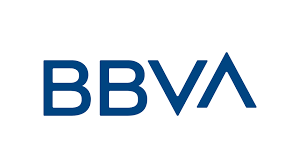
Spain’s BBVA is a multinational financial services company that is now investigating, with six lines of research, the pros of using QC in the financial sector. Beginning in the summer of 2020, and in cooperation with Spain’s Senior Council for Scientific Research (CSIC), Accenture, Fujitsu, Zapata Computing, and Multiverse, BBVA hopes to explore whether or not quantum technologies can somehow create an advantage over more traditional technology in various financial use cases.
Carlos Kuchkovky, BBVA’s global head of research and patents, put the collaboration this way:
“Although this technology is still in an early stage of development, its potential to impact the sector is already a reality. Our research is helping us identify the areas where quantum computing could represent a greater competitive advantage, once the tools have sufficiently matured. We believe this will be, for certain concrete tasks, in the next two to five years.”
8. BT

BT Group plc is a British multinational telecommunications holding company. In 2020, BT began a collaboration with several UK-based quantum tech start-ups including Nu-Quantum, Duality Quantum Photonics and Arqit to trial the world’s most secure fixed-mobile network infrastructure for 5G and connected cars.
The AIRQKD trial — which will run for 36 months and funded with £7.7 million by the Quantum Technologies Challenge, led by UK Research and Innovation — is a combination of BT’s global expertise in building quantum-secure networks using QKD (Quantum Key Distribution with novel techniques for applying quantum security to mobile devices that the startups mentioned are currently doing.
9. DEWA

The Dubai Electricity and Water Authority (DEWA) is a public service infrastructure company based in the oil-rich UAE and began in early 2020 organizing training sessions on quantum computing in partnership with Canada’s D-Wave Systems.
“We are keen on benefiting from the huge potential of quantum computing in improving energy efficiency, reducing consumption, and enhancing Dubai’s infrastructure,” said Saeed Mohammed Al Tayer, MD and CEO of DEWA.
“Through Digital DEWA, the digital arm of DEWA, we redefine the concept of utilities to create a new digital future for Dubai. DEWA will disrupt the entire business of public utilities by becoming the world’s first digital utility to use autonomous systems for renewable energy and storage and expand the use of AI and providing digital services. This is part of the Dubai 10X initiative which propels Dubai into the future and makes it 10 years ahead of other cities. DEWA organizes workshops for its employees to learn about the latest quantum computing technologies and gain knowledge and skills in this field. It also enables them to develop instant solutions using quantum computing in improving energy efficiency and reducing consumption, amongst other challenges that cannot be resolved with ordinary computers.”
10. Ericsson
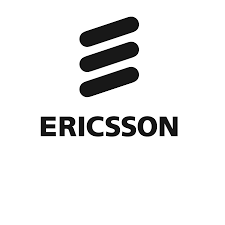
Once a powerhouse of mobile phones, Sweden’s Ericsson is a multinational networking and telecommunications company. Its R&D wing, Ericsson Research, has identified several potential use cases QC could have in the telecommunications industry:
- Physical layer processing of the user data plane in the RAN (quantum Fourier transform and quantum linear solver)
- Clustering for automatic anomaly detection in network design optimization project (quantum K-means algorithm)
- Prediction of the quality of user experience for video streaming based on device and network-level metrics (quantum support vector machine)
- Database search at the data management layer (Grover’s algorithm)
To date, however, little is known of any active collaborations ongoing with startups or larger stakeholders in the QC sector.
11. European Space Agency (ESA)
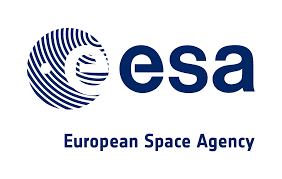
With headquarters in France, the European Space Agency is an intergovernmental organization of 22 member states dedicated to the exploration of space. Whilst the Agency realizes that quantum computers are still in their infancy, it has launched a “call for ideas” seeking applications of this novel technology to the space sector.
“Quantum computing technology shows a lot of promise, and industry and academia are developing it further,” said ESA’s Hamish Beck, a Young Graduate Trainee for Quantum Algorithms at the ESA. “But we are lacking concrete concepts for applying quantum computing to real-world problems.”
Along with this initiative, the ESA’s Partnership Project with Eutelsat, Airbus and Surrey Satellite Technology Ltd — set up to its Quantum mission to prepare “the way for the next generation of telecommunications satellites. With a planned launch date of 2021, the lifetime of the satellite is a projected 15 years.
12. Goldman Sachs

The Goldman Sachs Group, Inc., is an American multinational investment bank and financial services company. Having assembled a “full team dedicated to quantum computing”, its venture into quantum has so far meant research work with IBM on Monte Carlo modelling and simulation along with a collaboration with startup QC Ware.
William Zeng, head of quantum research at Goldman Sachs, said on the Palo Alto startup partnership: “Quantum computing could have a significant impact on financial services, and our new work with QC Ware brings that future closer.”
13. GSK
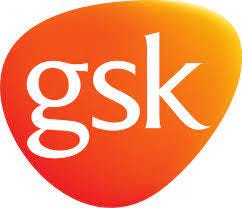
GlaxoSmithKline plc (GSK) is a British multinational pharmaceutical company. Last year, it announced the opening of a Ph.D. studentship in partnership with Cambridge Quantum Computing (CQC) and the University of Strathclyde to design and implement quantum algorithms for drug design and discovery.
Part of the joint venture will see CQC provide access to both their EUMEN and t|ket⟩™ toolkits and to state-of-the-art quantum computing platforms — enabling the explicit treatment of electronic structures observed in transition states, reaction pathways and potential energy surfaces.
14. Hitachi Ltd

Hitachi, Ltd. is a Japanese multinational conglomerate company. Hitachi Europe’s research wing at the Hitachi Cambridge Laboratory focuses on both experimental and theoretical studies of spin qubits using surface states of topological insulators, as well as corner states in silicon nano-FETs.
In 2019, the Hitachi Cambridge Laboratory — along with academic partners at the University of Cambridge, University College London and CEA-LETI — developed and demonstrated “a hybrid electronic circuit to address a barrier to realizing a practical large-scale quantum computer known as the “I/O problem.”
15. Mastercard
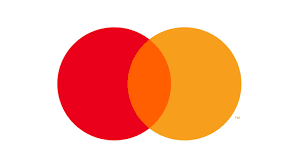
Mastercard Inc is a multinational financial services corporation from the US. Earlier in the year, it announced that it was applying state-of-the-art quantum-resistant technologies to develop the next generation of contactless payments.
The technology, called Enhanced Contactless (Ecos), is an industry-first and has been designed to “ensure that […] its dynamic digital landscape evolves, and new technologies like quantum computing are introduced, contactless technology is future-proofed to ensure consumers will continue to enjoy the same high levels of security and convenience they do today, in the decades to come.”
Mastercard is also a partner in the €11.1 million Quantum Computing in Ireland (QCoir), a software platform integrating multiple quantum bit technologies being developed in Ireland.
16. Merck

Merck & Co., Inc. was founded in the US and is one of the largest pharmaceutical companies in the world. In the spring of 2020, M Ventures, the corporate venture arm of Merck, was part of a round in QC startup Seeqc Inc., which raised more than $11 million in venture capital funding for the Elmsford, NY startup. This must be a clear indicator that Merck believes quantum has potential.
“We think this technology will change the world of simulations for us if it proves to be scalable,” said Philipp Harbach, head of in silico research at Merck.
17. Mitsubishi Motors

Mitsubishi Motors Corporation is a Japanese multinational automotive manufacturer. In 2019, scientists from IBM and Mitsubishi Chemical simulated, on a quantum computer, the reaction mechanism between lithium and oxygen in lithium-air (Li-air) batteries.
Before this Mitsubishi Chemical was already working on the problem using classical computing. Then, they contacted IBM, well aware the problem created by large chemical system required many more qubits (quantum bits) than there is room for in any of IBM’s quantum computers.
“We needed to figure out a way to actually reduce the number of qubits down to some level where we could actually use a quantum computer or quantum simulators to study the problem,” said Dr. Gavin Jones, an IBM Q Ambassador and a research staff member in the Quantum Applications in Chemistry and Science group at IBM Research — Almaden.
Whether something is achieved from this in the future could lead to more efficient batteries for a host of industries.
18. Novo Nordisk
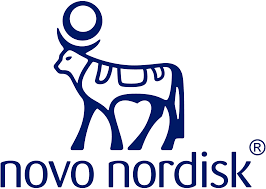
The only Danish company on the list, Novo Nordisk A/S is a multinational pharmaceutical company. In 2020, its Novo Nordisk Foundation awards handed over DKK 108.6 million to two new research centres developing and using quantum simulators to advance our understanding of complex biological processes and biomolecules and helping us predict how they behave.
“Quantum technologies have enormous potential in the life sciences. However, realizing this potential requires an interdisciplinary approach at the highest level both in physics and mathematics and in chemistry and biology. Denmark has a historical leadership position in both quantum technologies and the life sciences, so it is logical to integrate the expertise in both fields to tackle this challenge. The two projects are very ambitious, and we hope that they will produce results that can be the new gold standard for knowledge that can be elucidated using quantum technologies within biology, chemistry and medicine,” says Lene Oddershede, Senior Vice President, Natural & Technical Sciences, Novo Nordisk Foundation.
19. Rabobank
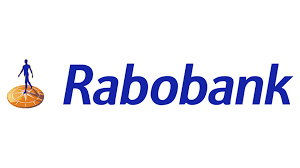
Rabobank is a Dutch multinational banking and financial services company and a global leader in food and agriculture financing and sustainability-oriented banking. Last year, the bank announced — along with ABN Amro and ING — to jointly explore the exciting world of quantum technology.
Although it’s in its early days, the bank sees an opportunity that quantum tech can offer the banking and financial sectors
20. Royal Dutch Shell

Royal Dutch Shell, commonly known as Shell, is a British-Dutch multinational oil and gas company. Last year, the company began a collaboration with theoretical physicists and chemists of Leiden University to research how quantum computer algorithms can help simulate complex molecules.
“This is not a purely academic study, we have to keep track of the potential business value of using quantum computers, and how to realize it,’ said Detlef Hohl, Shell’s Chief Scientist for Computational and Data Science. “Today this is zero because no relevant calculation can be executed better, faster or cheaper on a quantum computer than on a regular one. But this may change dramatically with time. Shell is conducting Research & Development which is preparing our business for the future. This includes developing technology that will enable Shell to become a net-zero emissions energy business by 2050 or sooner. Shell has supported research in the Netherlands for many decades, and this collaboration is another demonstration of our deep involvement in the Dutch Research and Development ecosystem.”
21. SK Telecom

When South Korean company SK Telecom Co., Ltd., a wireless telecommunications operator, announced the First Smart Power Plant Secured by 5G Quantum Cryptography in partnership with ID Quantique (IDQ) last summer, it was a statement that SK Telecom believes quantum technologies, by way of utilizing quantum random number generation (QRNG) and quantum key distribution (QKD), will future-proof their network security and offer innovative solutions to their customers, a win for all parties.
On the collaboration, Grégoire Ribordy, CEO and co-founder of ID Quantique, said: “We are very proud of this partnership with KHNP and SK Telecom. Besides government and finance, we see critical infrastructure as a key area of attacks. With our solutions, we focus on providing long-term security solutions for our customers’ IT infrastructures and we are dedicated to accompanying companies who wish to prepare for the quantum decade.”
22. Telecom Italia (TIM)
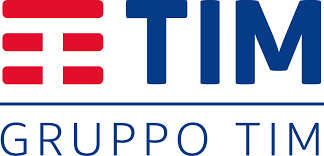
Gruppo TIM is a telecommunications company that provides telephony services, mobile services and DSL data services and just happens to be the first operator in Europe to use quantum computing live on its mobile networks (4.5G and 5G).
In 2020, using D-Wave’s 2000Q™ quantum computer, TIM optimized planning of radio cells, framing the problem within a QUBO (quadratic unconstrained binary optimization) algorithmic model.
Aware computing speed is expected to improve further as QC technology evolves, TIM knows how important it will be to configure the network in real-time in order to provide its customers with better mobile service.
23. Total SE

Total SE is a French multinational integrated oil and gas company. Last year it signed a multi-year partnership with UK startup Cambridge Quantum Computing (CQC) to research into Carbon Capture, Utilization and Storage (CCUS) technologies.
Ilyas Khan, CEO of CQC, said:
“We are very excited to be working with Total, a demonstrated thought-leader in CCUS technology. Carbon neutrality is one of the most significant topics of our time and incredibly important to the future of the planet. Total has a proven long-term commitment to CCUS solutions. We are hopeful that our work will lead to meaningful contributions and an acceleration on the path to carbon neutrality.”
The two’s ultimate goal is to develop novel quantum algorithms to improve materials for CO2 capture. With ambitions to become a key player in CCUS, Total invests up to 10% of its annual R&D effort in this area, a serious amount of bank.
24. Willis Towers Watson
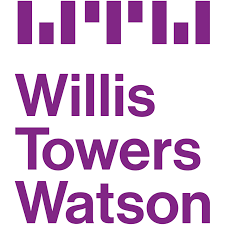
And finally, we have Willis Towers Watson, a UK-based global multinational risk management, insurance brokerage and advisory company. In 2019, the company announced an exclusive deal with Microsoft to develop the potential of quantum computing for its risk management and insurance clients within the financial services, insurance and investment space.
With a long-standing partnership with Microsoft already in place on the development of cutting-edge technology and bringing advanced modelling tools to insurers across the globe, Willis Towers Watson’s venture into quantum seems like, in the words of the company, “a natural extension of that partnership and offers the potential to transform risk quantification and make the insurance value chain more efficient.”
John Haley, Willis Towers Watson’s CEO, said, “Willis Towers Watson provides advanced analytics tools to over 1,000 insurers around the world, allowing them to quantify risk and allocate capital efficiently. Current modelling techniques to quantify risk require a huge amount of computing power, using thousands of computers over many hours. The better the models, the more efficiently our clients can use their capital to manage risk. Quantum computing offers us the chance to look at our clients’ problems in a different way. By focusing on how we would model the problems on quantum computers when they become available at scale, we are able to redefine the problems and speed up our solutions on existing hardware today.”
Parting Words
Still, in the very early days of quantum, it may be some time before we see more of the bigger players from the traditional sectors adopting it to their long-term strategy. When it happens, that is when quantum technology will really start to show its potential. Until then, it will be up to the likes of Amazon AWS, Microsoft, IBM, Google etc to show them how it’s done.
Have we missed any out or got something wrong? If so, don’t hesitate to contact us at hello@thequantuminsider.com.
The Quantum Insider (TQI)

If you found this article to be informative, you can explore more current quantum news here, exclusives, interviews, and podcasts.













